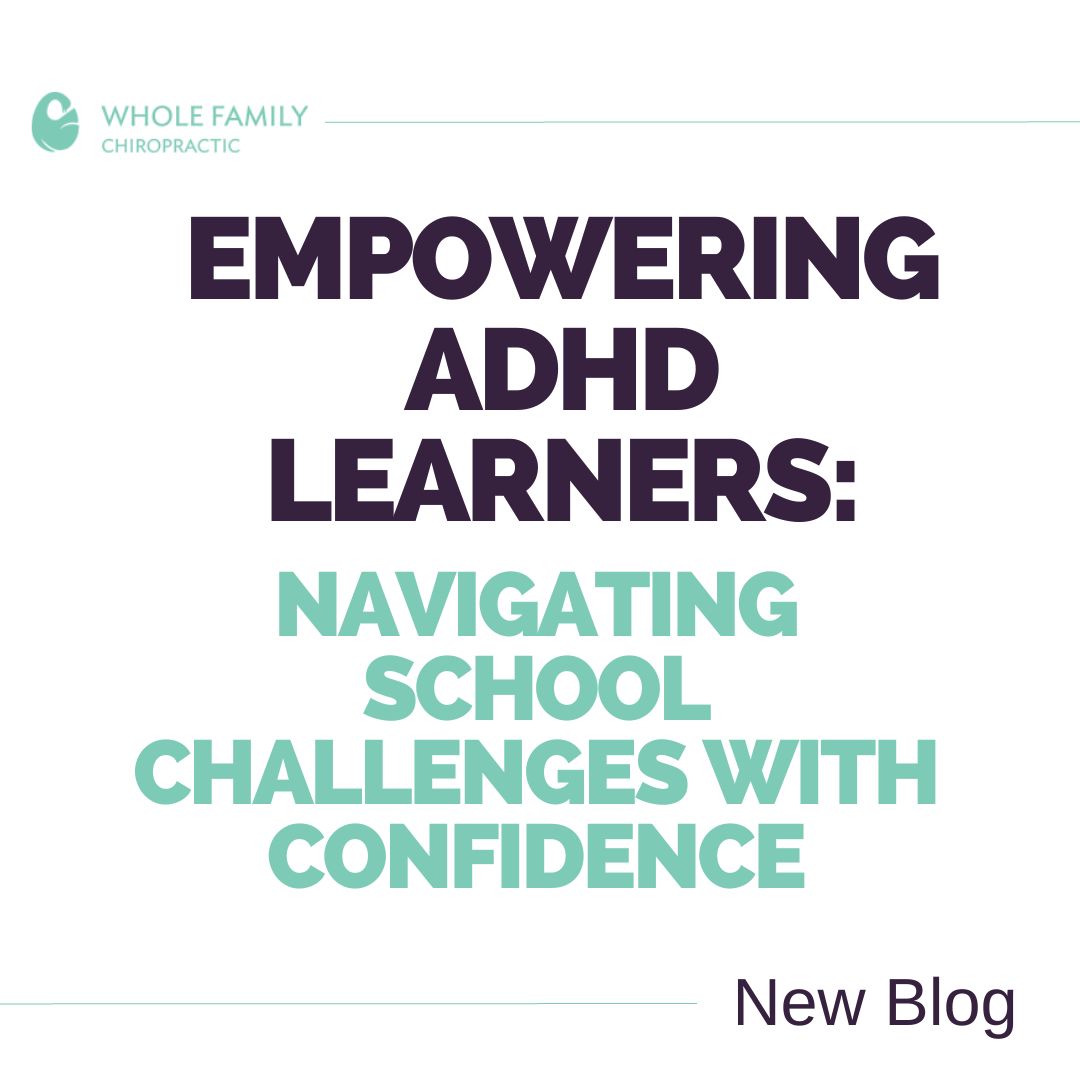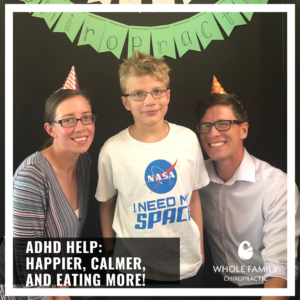If your child is facing the challenges of ADHD-related behavior and school difficulties, you’re not alone. The early months of the school year can be incredibly tough for families dealing with ADHD. Establishing routines, completing homework, staying focused, and managing behavior can be daunting. With the added temptations of holiday treats and festivities, this time of year can be especially challenging for children with ADHD.
We want to dig into the neurological aspects of ADHD in children and how these kiddos find themselves in a perpetual state of high alert, akin to a car always having the gas pedal on. This continuous state of fight or flight response leads to hyperactivity, impulsivity, difficulties with concentration, and disrupted sleep patterns.
This blog is specifically for parents who want to help their child struggling with ADHD thrive without relying on heavy medications. We want to equip you with the knowledge and strategies to help your child find their way to a calmer and more focused state by engaging their innate “brake pedal” mechanisms, through the Vagus Nerve. We’ll discuss the natural, drug-free solutions and options that can significantly impact your child’s school year.
Understanding ADHD Symptoms and Challenges
To empower your child, it’s essential to understand the five main ways ADHD can negatively impact their school performance.
- Difficulty Focusing and Sustaining Attention: ADHD children often struggle to maintain focus and attention on tasks, leading to missed instructions and incomplete assignments.
- Impulsivity and Impaired Decision-Making: Impulsivity can manifest as speaking out of turn and disruptive behavior, hindering their learning and disrupting the class.
- Restlessness and Hyperactivity: Some ADHD children exhibit hyperactivity, making it difficult for them to sit still and engage in quiet tasks.
- Poor Time Management and Organization: Time management and organizational skills are often challenging for ADHD children, leading to missed deadlines and frustration.
- Emotional Dysregulation: Emotional challenges, including heightened stress responses, can make it difficult for them to manage frustration and peer interactions.
Understanding the Root Causes and Neurological Connection
One of the most frustrating aspects of dealing with ADHD is its ability to manifest in various challenges throughout your child’s daily life, particularly in the school environment. But here’s the empowering revelation we want to share with you – all these challenges stem from a common root cause: an overactive and excessively stimulated sympathetic nervous, often referred to as the “fight or flight” response.
We liken this aspect of the nervous system to the relentless “gas pedal.” Astonishingly, over 90% of children find themselves stuck in this hyperactive state from the very beginning of their lives. It can start during a stressful and emotionally charged pregnancy, continuing through birth trauma or intervention such as forceps, vacuum, induction, or emergency c-sections.
If your child struggled with any early childhood challenges like colic, recurrent ear infections, frequent tantrums, and sleep difficulties, those experiences only exacerbate this overdrive. Importantly, this only suppresses their parasympathetic “brake pedal,” mainly governed by the Vagus Nerve, rendering it incapable of fulfilling its crucial role when needed the most.
Despite many of these early struggles being labeled as “normal” by the medical system, these stressors and interventions during pregnancy and birth, as well as early childhood challenges, are not something children naturally grow out of. Current research and neurological insights tell us a different story. Instead, many of these children evolve into individuals grappling with neurological difficulties later in life, like ADHD.
How Can Neurologically-Focused Chiropractic Help?
So, if your child is struggling this school year and you’re hesitant about medication, there’s hope. Consider exploring Neurologically-Focused Chiropractic Care at Whole Family Chiropractic. Our approach doesn’t aim to treat or cure ADHD, but it activates the “brake pedal” side of your child’s brain and nervous system. This helps regulate the overactive sympathetic “gas pedal” we’ve discussed.
To learn more about drug-free options for ADHD and our care protocols, give us a call today at Whole Family Chiropractic, and one of our incredible Care Advocates will walk you through it all. If you are not local to us in St Paul, Minneapolis, or the Twin Cities, please check out the PX Docs directory to find a PX Doc local to you.
Parenting a child with ADHD is a journey filled with unique challenges and rewards. We want to help you turn these challenges into opportunities for growth and success. We’d love to work with you to help your child and entire family experience brighter days ahead.
Read more about how neurologically based chiropractic can help your child’s brain feel calmer and more organized by clicking here:



